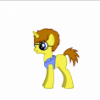critique wanted A True True Friend Septet. Am I being too tough on my french horn player
-
Similar Content
-
- 3 replies
- 161 views
-
- 0 replies
- 378 views
-
- 0 replies
- 423 views
-
how would the Eddsworld characters sing a true true friend?
- a true true friend
- crossover
- (and 21 more)
- 2 replies
- 407 views
-
- 35 replies
- 2,152 views
-
-
Recently Browsing 0 members
- No registered users viewing this page.



.thumb.png.ea6ea28a6cdbfd3863515f959d5ec1f1.png)

Recommended Posts
Create an account or sign in to comment
You need to be a member in order to leave a comment
Create an account
Sign up for a new account in our community. It's easy!
Join the herd!Sign in
Already have an account? Sign in here.
Sign In Now